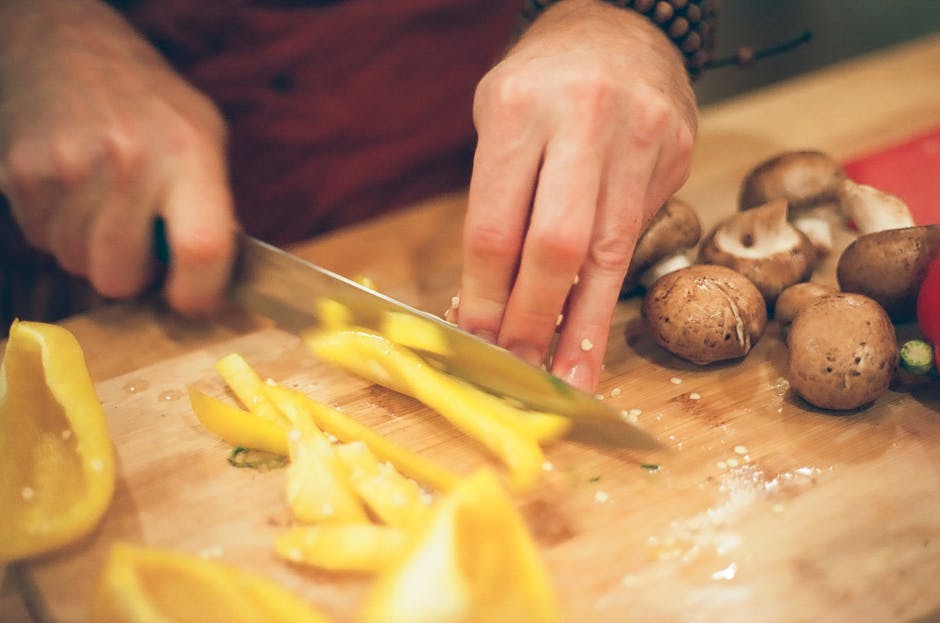Introduction
The Paleo diet, often referred to as the “caveman diet,” focuses on consuming whole, unprocessed foods that our hunter-gatherer ancestors may have eaten. This dietary approach emphasizes lean proteins, fruits, vegetables, nuts, and seeds while excluding grains, legumes, dairy, and processed foods. One often overlooked benefit of adopting the Paleo lifestyle is the boost it provides to your cooking skills. By necessity, you’ll be spending more time in the kitchen preparing your meals, leading to a deeper understanding of ingredients and culinary techniques.
Paleo and Cooking Skills: A Natural Partnership
Embracing Whole Foods: A Gateway to Culinary Exploration
The core principle of Paleo revolves around whole, unprocessed foods. This automatically pushes you away from pre-packaged meals and towards fresh ingredients. This shift necessitates learning how to transform raw vegetables, cuts of meat, and other fundamental components into delicious and satisfying meals. Consider these benefits:
- Ingredient Awareness: You’ll become intimately familiar with the flavors and textures of different foods.
- Reduced Reliance on Processed Foods: You learn to create your own sauces, dressings, and snacks from scratch.
- Creative Meal Planning: You’ll experiment with new recipes and combinations to keep your meals interesting.
Mastering Essential Cooking Techniques
The Paleo diet often requires you to learn or refine essential cooking techniques. Instead of relying on boxed pasta or pre-made sauces, you’ll need to become proficient in methods like:
- Roasting Vegetables: Perfectly roasting vegetables brings out their natural sweetness and creates a flavorful side dish.
- Grilling Meats: Mastering grilling techniques ensures tender and juicy protein sources.
- Making Sauces from Scratch: You’ll learn to create flavorful sauces using natural ingredients like herbs, spices, and nut butters.
- Baking Paleo-Friendly Treats: You’ll explore alternative flours like almond flour and coconut flour to create delicious baked goods.
Developing a Deeper Understanding of Flavors
Without the crutch of processed ingredients filled with artificial flavors, you’ll train your palate to appreciate the nuances of natural flavors. You’ll start to discern how different ingredients interact and complement each other. This heightened awareness will allow you to:
- Balance Flavors: Learn to balance sweet, sour, salty, and bitter elements in your dishes.
- Experiment with Spices and Herbs: Develop a repertoire of go-to spice blends and understand how herbs can enhance your meals.
- Create Your Own Recipes: Confidently adapt and create your own recipes based on your personal taste preferences.
Overcoming Challenges and Expanding Your Repertoire
The initial transition to Paleo cooking might seem daunting. However, overcoming these challenges builds confidence and expands your culinary skills. Expect to encounter situations like:
- Finding Paleo-Friendly Substitutions: Learning to swap out ingredients like dairy or grains with Paleo-compliant alternatives.
- Adapting Existing Recipes: Modifying your favorite recipes to fit the Paleo framework.
- Dealing with Initial Failures: Don’t be discouraged by occasional cooking mishaps! Each attempt is a learning opportunity.
Conclusion
The Paleo diet is more than just a way of eating; it’s an opportunity to reconnect with food and develop valuable cooking skills. By embracing whole foods, mastering essential cooking techniques, and developing a deeper understanding of flavors, you’ll not only nourish your body but also unlock your inner chef. So, embrace the Paleo lifestyle and embark on a culinary adventure that will transform your relationship with food and elevate your cooking abilities.
